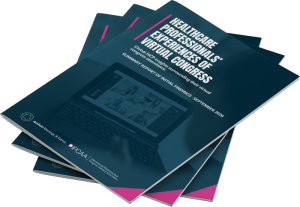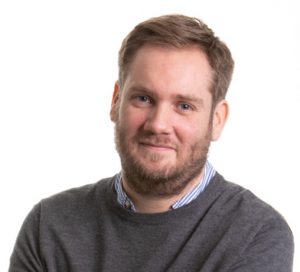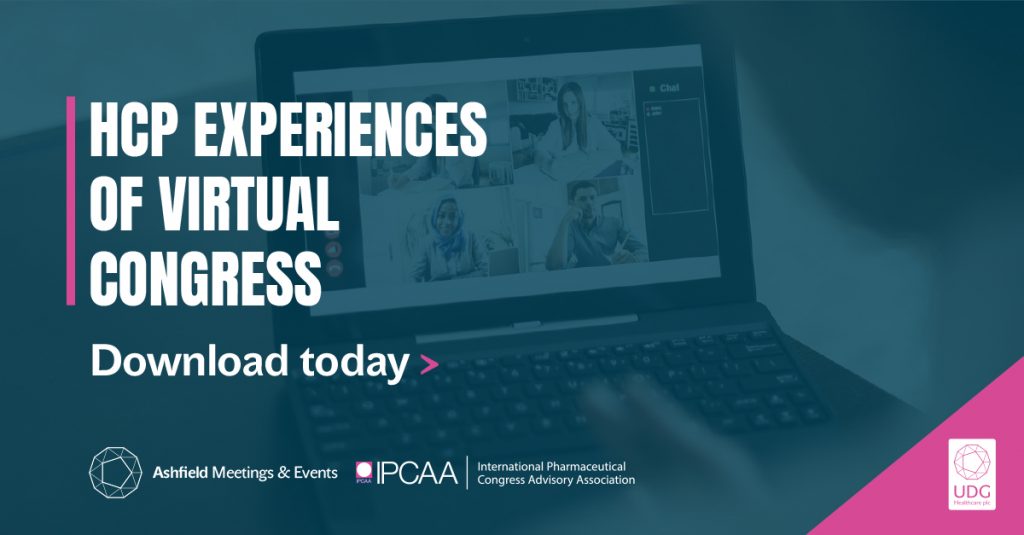What impact has COVID-19 had on Healthcare Professionals’ behaviour and experiences at congress?
19 June 2021
We have joined forces with IPCAA to find out what HCPs really think about virtual medical congresses in our latest global study
We are pleased to announce that we have joined our medical congress expertise with that of the highly esteemed association, IPCAA (International Pharmaceutical Congress Advisory Association) to find out what healthcare professionals really think about virtual medical congresses in our latest study released today.
 Through a survey of more than 300 physicians from six countries (EU and US) and across 14 therapy areas, we have gained detailed insights that are set to help medical societies, professional congress organisers (PCOs) and industry consider how to shape virtual congresses of the future.
Through a survey of more than 300 physicians from six countries (EU and US) and across 14 therapy areas, we have gained detailed insights that are set to help medical societies, professional congress organisers (PCOs) and industry consider how to shape virtual congresses of the future.
“As we are all aware, by March this year the COVID-19 pandemic had forced the end of ‘normality’ for the majority across the globe, and one of the inevitable repercussions within the healthcare sector was that many associations and PCOs had to either cancel or postpone their events,” explains IPCAA’s Past President, Martin N. Jensen. “Equally, a significant number of congresses took the bold decision to go 100% virtual; many with just a few weeks to pivot. Here at IPCAA, we wanted to find out what HCPs experienced as a virtual attendee; mainly to understand what component parts of the congress have made the positive and potentially enduring transition to virtual. We knew that Ashfield would be the perfect partner for this research thanks to their unrivalled congress expertise and previous white papers on the subject.”
The study – the second part of which is planned for before the end of 2020 – looks at a variety of elements of the virtual congress, highlighting HCPs’ thoughts on accessibility and technology, how they viewed the online activities including industry symposia and poster sessions, through to connecting with industry and peers.

“The aim of our research was not to determine if virtual congresses will surpass physical as the preferred model for attendance, nor was it to expose the limitations of virtual with a view to it being a stop-gap solution and an immediate and necessary response to the COVID-19 pandemic,”
adds our Client Partnership Director, Andrew Moore. “It was purely to assess the end-to-end virtual congress experience from the perspective of the HCP – identifying which elements of a traditional, in-person congress can be, or have been, successfully replicated in a virtual setting.”IPCAA’s Co-President, Nicky Simpson, adds, “We’ve gained some valuable insights from these initial findings – information that medical congress stakeholders will undoubtedly be able to use as we prepare for a world in which hybrid congresses become part of the ‘new normal.’ It is vital that evidence such as this enables us to plan and collaborate to offer rich, impactful virtual experiences that will complement live, face-to-face events which we all hope will return in the near future.”
For a detailed yet readable summary report of IPCAA and Ashfield’s initial findings, click on the image below:

